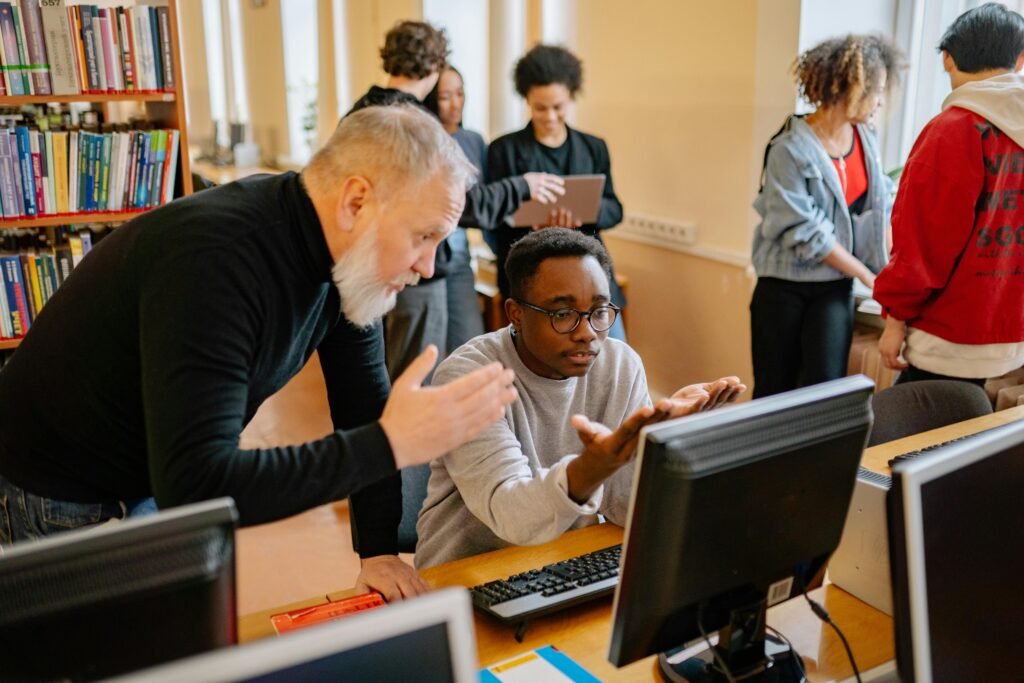From Helpers to Partners in Education

For years, “parent involvement” in schools has been defined in very limited terms. Parents were asked to chaperone field trips, bring snacks, or help with the book fair. While these roles are important, they represent only a fraction of what families can contribute.
The truth is, parents aren’t just helpers. We are partners. And when schools make the shift from seeing parents as extra hands to recognizing us as collaborators, the entire school community benefits.

Moving Beyond “Helping”
Traditionally, involvement has been tied to physical presence in the school building. For example, parents were encouraged to volunteer in classrooms or attend daytime meetings. However, this model leaves out many families—especially those working long hours, caring for younger children, or balancing other responsibilities.
As a result, many parents have felt left out or questioned whether they were “involved enough.” But let’s be clear: involvement is not limited to being in the building. In fact, parents can support learning in countless ways—through reinforcing skills at home, sharing cultural traditions, or contributing professional expertise.
Therefore, it’s time to move beyond the idea of parents as occasional helpers and instead view them as essential voices in shaping schools.

The Shift Toward Partnership
Fortunately, education is evolving. More schools are beginning to recognize parents as co-educators and active decision-makers. Rather than limiting families to volunteer slots, schools are inviting them into conversations about curriculum, policy, and culture.
For instance, one California school created a parent advisory board. By including parents in policy discussions, the school not only boosted student achievement but also increased family satisfaction. This example shows that when parents are treated as partners, real change happens.
In short, partnership is about more than inviting parents in—it’s about valuing their voices, respecting their experiences, and creating space for meaningful collaboration.

Why This Shift Matters
When schools move from “helpers” to “partners,” the benefits are widespread.
- For students: Research shows that children thrive when their parents are engaged. They earn higher grades, attend more regularly, and feel more motivated.
- For families: Partnerships build belonging. Parents feel respected, included, and connected to the school community.
- For teachers: Educators gain valuable allies. With ongoing communication, teachers better understand student needs and feel supported in meeting them.
Ultimately, redefining involvement creates a three-way partnership—students, parents, and educators—all working together for success.

Strategies for Engaging Parents as Partners
Of course, making this shift takes intentional effort. Schools can start by implementing strategies that open doors for families in new and meaningful ways:
- Offer leadership opportunities. Instead of only asking parents to volunteer, invite them into advisory groups, policy conversations, or planning committees.
- Use clear and inclusive communication. Share information across multiple platforms—email, text, apps, social media—so every family can stay connected.
- Host empowering workshops. Provide sessions on child development, academic supports, and family wellness so parents feel equipped to advocate for their children.
- Celebrate diversity. Every family brings unique strengths and perspectives. Listen, honor, and learn from them.
- Commit to growth. Engagement isn’t a one-time event. Schools should regularly ask for feedback, reflect on what’s working, and adjust strategies as needed.
By taking these steps, schools can shift the culture from “we’ll let you know when we need help” to “we want you at the table with us.”
Final Thought
When parents are seen as true partners, schools are stronger. Families feel valued, teachers feel supported, and most importantly—students thrive.
It’s time to change the narrative. Parents don’t just help schools; we help shape them.

👉 Call to Action: If you’re an educator, ask yourself: “How can I invite parents into partnership this year?” And if you’re a parent, ask your school, “How can I contribute beyond volunteering?” Together, we can build schools where every child has the opportunity to succeed.



